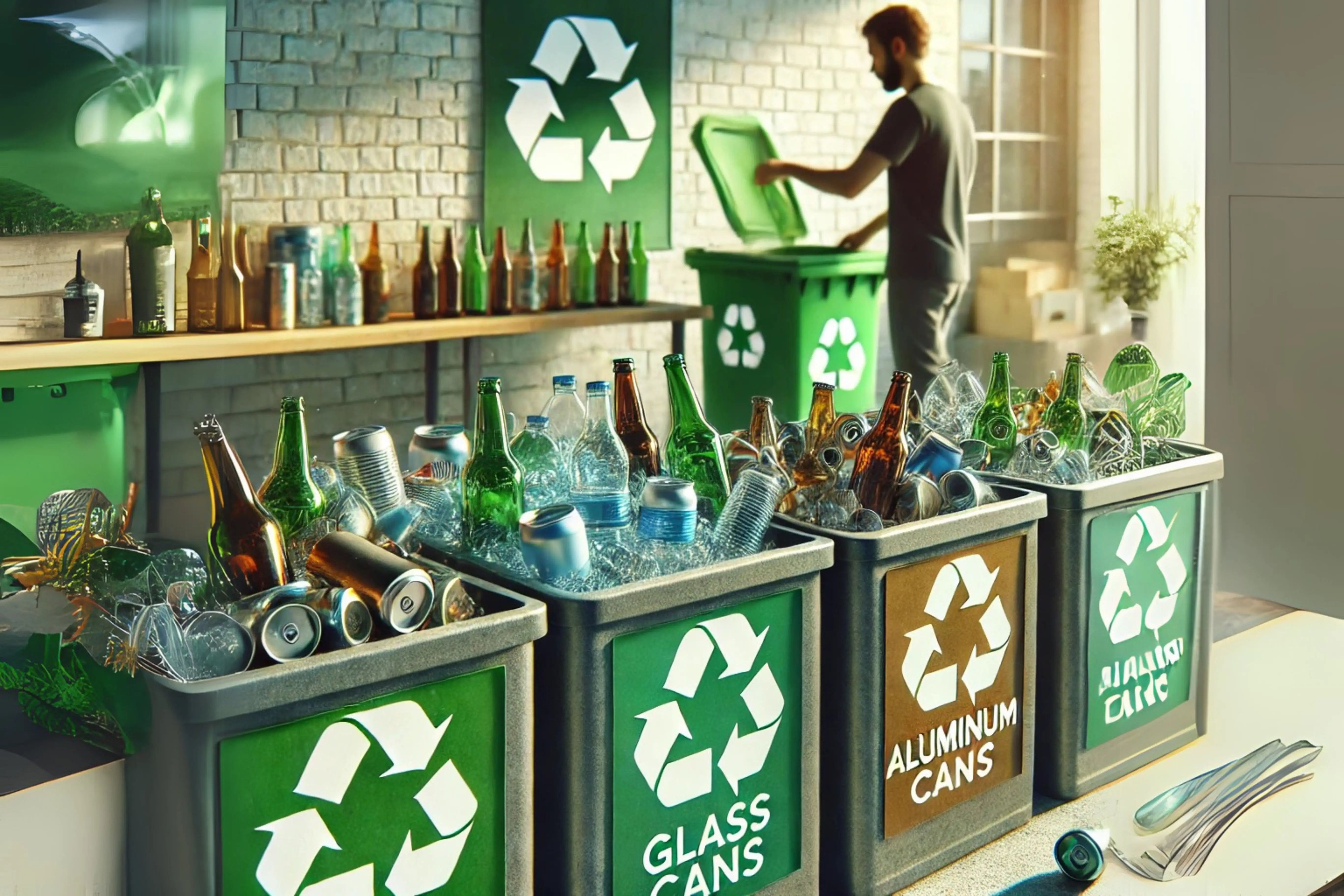The packaging industry is shifting significantly - more brands are turning their backs on plastic packaging in favor of glass bottles. This transition is driven by increasing consumer demands for eco-friendly packaging, regulatory restrictions on single-use plastics, and the superior protective qualities of glass containers. Industries such as the beverage industry, beauty sector, and pharmaceutical industry are leading the way in embracing sustainable materials. But why is glass bottle packaging becoming the preferred consumer choice? Let’s find out the reasons behind this growing trend.
The Sustainability Factor: Why Glass Is the Future
Eco-Friendly & Recyclable
Glass has 100% recyclability. They can be repurposed indefinitely without any loss of quality, unlike plastic bottles, which degrade over time. The glass container industry is investing heavily in recycled materials, reducing reliance on virgin plastic and other non-renewable packaging materials.
Lower Carbon Footprint
Brands are focusing on reducing carbon emissions as the emphasis on sustainability is increasing. The production process of recycled glass requires less energy than making new glass from scratch using raw materials like soda ash. Additionally, the rise of lightweight glass bottles helps minimize greenhouse gas emissions during transportation.
Tackling the Plastic Waste Crisis
Plastic pollution is a growing concern, and modern consumers are actively avoiding plastic containers. Glass packaging provides an eco-conscious packaging alternative, supporting the circular economy by promoting refillable glass bottles and reducing waste.
Also read: Are Glass Bottles Better Than Plastic? A Comprehensive Comparison
Consumer Preferences Are Driving the Shift
Demand for Premium Packaging
Consumers perceive glass bottle packaging as a premium option. Whether it's spirits-based products, high-end beauty products, or beverage products, glass containers enhance product integrity and appeal to luxury-conscious shoppers.
Health & Safety Concerns
Unlike plastic packaging, which can leach chemicals over time, glass jars and glass vials offer a safer option, particularly for skincare products and pharmaceutical applications. Borosilicate glass, in particular, is valued for its resistance to chemical reactions and durability.
Eco-Conscious Consumer Choice
The rise of eco-conscious consumers, particularly in regions like South Asia, East Asia, and the Middle East & Africa, is fueling the demand for glass containers. They are willing to pay more for eco-friendly packaging that aligns with their commitment to sustainability.
Industries Leading the Transition to Glass Bottles
Personal Care & Beauty Industry
Having the ability to preserve natural ingredients, the beauty sector is embracing glass packaging for cosmetic products. Luxury cosmetic brands are opting for glass package designs to enhance their commitment to sustainability.
Food & Beverage Sector
The beverage sector, particularly the beer bottle and spirits-based products market, is seeing a shift toward glass packaging due to its protective qualities and premium feel. Beverage trends indicate that brands using products in glass containers are outperforming those using plastic packaging.
Pharmaceutical Industry
Glass vials and glass jars are widely used in the pharmaceutical industry. Their superior product integrity and resistance to contamination is second to none. The industry’s emphasis on sustainability has also led to a growing demand for glass packaging solutions.
Cost vs. Long-Term Value: Why Brands See Glass as an Investment
Higher Initial Cost, Greater Brand Value
While the production costs of glass packaging may be higher than plastic, the long-term brand value is significantly greater. Consumers associate glass with quality and environmental sustainability, making it a preferred option for brands looking to stand out.
Durability & Reusability
Refillable glass bottles and lightweight glass technology are helping brands overcome previous cost concerns. Investing in sustainable materials now ensures long-term benefits and aligns with growing packaging trends.
Regulatory Pressures on Plastic
Governments across Eastern Europe, Western Europe, and other regions are imposing stricter regulations on plastic waste, pushing brands to adopt glass bottle packaging. This shift is also increasing the market growth for glass packaging industry solutions.
Challenges & How Brands Are Overcoming Them
Shipping & Handling Costs
Glass bottles are heavier than plastic, but innovations in lightweight glass technology and improved production processes are reducing shipping costs. Brands are also using protective packaging options to prevent breakage.
Scalability for Mass Production
Expanding production capacities and optimizing the production facility layout are enabling brands to scale their glass packaging operations effectively. Increased demand for glass containers is also driving investment in new manufacturing techniques.
How Brands Can Make the Transition to Glass Bottles Smoothly
Sourcing Wholesale Glass Bottles
Companies should work with reliable suppliers of wholesale glass packaging to secure cost-effective and high-quality glass container solutions. Investing in bulk orders can further reduce costs.
Educating Consumers
Highlighting the environmental benefits of glass packaging will help brands build trust with modern consumers. Transparency about packaging options and sustainability efforts enhances brand loyalty.
Sustainable Branding
Emphasizing eco-friendly packaging and customization options allows brands to align with packaging trends. Offering luxury glass packaging can differentiate brands in competitive markets.
Conclusion: The Future of Packaging Is Glass
The glass packaging industry is experiencing rapid market growth, driven by increased consumer awareness, regulatory shifts, and environmental sustainability efforts. More brands across the personal care sector, beverage industry, and pharmaceutical industry are making glass their ideal material for packaging.
By adopting glass bottles, companies reduce their environmental footprint and meet the evolving consumer preferences for premium, eco-conscious packaging. Businesses looking to stay ahead should explore wholesale glass bottle packaging solutions today. The shift to glass is no longer a trend—it’s the future of sustainable packaging.




